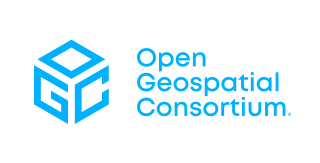
Interoperability is a characteristic of a product or system to work with other products or systems. While the term was initially defined for information technology or systems engineering services to allow for information exchange, a broader definition takes into account social, political, and organizational factors that impact system-to-system performance.
The Organization for the Advancement of Structured Information Standards is a nonprofit consortium that works on the development, convergence, and adoption of projects - both open standards and open source - for Computer security, blockchain, Internet of things (IoT), emergency management, cloud computing, legal data exchange, energy, content technologies, and other areas.
An open standard is a standard that is openly accessible and usable by anyone. It is also a common prerequisite that open standards use an open license that provides for extensibility. Typically, anybody can participate in their development due to their inherently open nature. There is no single definition, and interpretations vary with usage. Examples of open standards include the GSM, 4G, and 5G standards that allow most modern mobile phones to work world-wide.
The Open Document Format for Office Applications (ODF), also known as OpenDocument, standardized as ISO 26300, is an open file format for word processing documents, spreadsheets, presentations and graphics and using ZIP-compressed XML files. It was developed with the aim of providing an open, XML-based file format specification for office applications.
In software engineering, service-oriented architecture (SOA) is an architectural style that focuses on discrete services instead of a monolithic design. SOA is a good choice for system integration. By consequence, it is also applied in the field of software design where services are provided to the other components by application components, through a communication protocol over a network. A service is a discrete unit of functionality that can be accessed remotely and acted upon and updated independently, such as retrieving a credit card statement online. SOA is also intended to be independent of vendors, products and technologies.
RosettaNet is a non-profit consortium aimed at establishing standard processes for the sharing of business information (B2B). RosettaNet is a consortium of major Computer and Consumer Electronics, Electronic Components, Semiconductor Manufacturing, Telecommunications and Logistics companies working to create and implement industry-wide, open e-business process standards. These standards form a common e-business language, aligning processes between supply chain partners on a global basis.
Web Services Discovery provides access to software systems over the Internet using standard protocols. In the most basic scenario there is a Web Service Provider that publishes a service and a Web Service Consumer that uses this service. Web Service Discovery is the process of finding suitable web services for a given task.
The Schools Interoperability Framework, Systems Interoperability Framework (UK), or SIF, is a data-sharing open specification for academic institutions from kindergarten through workforce. This specification is being used primarily in the United States, Canada, the UK, Australia, and New Zealand; however, it is increasingly being implemented in India, and elsewhere.
Business-to-Business (B2B) Gateways integrate data from back-end systems, enabling information exchange across trading partners. B2B Gateways also provide a centralized point for transformation of multiple data sources through interoperability standards such as XML, cXML(Commerce XML) and EDI. B2B Gateways provide businesses an e-commerce platform for integrating with key suppliers and customers quickly and easily. The platform is often a component of a company's Service-Oriented Architecture (SOA) architecture. Other capabilities of the B2B Gateway include trading partner management and security control. B2B Gateways help to bridge the collaboration gap across the supply chain partners and transform the data flow between companies from a batch oriented manner into a real time process. This streamlines the processing and enables for business activity monitoring(BAM) systems to be implemented, which provides the enterprise with greater visibility and proactive control over the applications. B2B Gateways continue to be in high demand for organizations of every size.

David R.R. Webber is an Information technologist specializing in applications of XML, ebXML and EDI to standards-based information exchanges. He is a senior member of the ACM since 2007. David Webber is one of the originators of the ebXML initiative for global electronic business via the internet. He is holder of two U.S. Patents for electronic information exchange transformation and those patents are now cited widely by 37 other patents. David Webber has implemented several unique groundbreaking computer solutions in his career including the world's first airport gate scheduling system , the SeeMail email client for MCIMail written in Prolog, the patented GoXML system for XMLGlobal, the ShroudIt obfuscation system for LNK Corp, and the VisualScript tool for Smartdraw Inc.
The Microsoft Open Specification Promise is a promise by Microsoft, published in September 2006, to not assert its patents, in certain conditions, against implementations of a certain list of specifications.
Service Component Architecture (SCA) is a software technology designed to provide a model for applications that follow service-oriented architecture principles. The technology, created by major software vendors, including IBM, Oracle Corporation and TIBCO Software, encompasses a wide range of technologies and as such is specified in independent specifications to maintain programming language and application environment neutrality. Many times it uses an enterprise service bus (ESB).
Content Assembly Mechanism (CAM) is an XML-based standard for creating and managing information exchanges that are interoperable and deterministic descriptions of machine-processable information content flows into and out of XML structures. CAM is a product of the OASIS Content Assembly Technical Committee.
Electronic Business using eXtensible Markup Language, commonly known as e-business XML, or ebXML as it is typically referred to, is a family of XML based standards sponsored by OASIS and UN/CEFACT whose mission is to provide an open, XML-based infrastructure that enables the global use of electronic business information in an interoperable, secure, and consistent manner by all trading partners.

The Open Geospatial Consortium (OGC) is an international voluntary consensus standards organization that develops and maintains international standards for geospatial content and location-based services, sensor web, Internet of Things, GIS data processing and data sharing. The OGC was incorporated as a not for profit in 1994. At that time, the official name was the OpenGIS Consortium. Currently, commercial, government, nonprofit, universities, and research organizations participate in a consensus process encouraging development, maintenance, and implementation of open standards.
International HL7 implementations is a collection of known implementations of the HL7 Interoperability standard. These do not necessarily refer to cross-border health information systems.
Microsoft, a tech company historically known for its opposition to the open source software paradigm, turned to embrace the approach in the 2010s. From the 1970s through 2000s under CEOs Bill Gates and Steve Ballmer, Microsoft viewed the community creation and sharing of communal code, later to be known as free and open source software, as a threat to its business, and both executives spoke negatively against it. In the 2010s, as the industry turned towards cloud, embedded, and mobile computing—technologies powered by open source advances—CEO Satya Nadella led Microsoft towards open source adoption although Microsoft's traditional Windows business continued to grow throughout this period generating revenues of 26.8 billion in the third quarter of 2018, while Microsoft's Azure cloud revenues nearly doubled.


